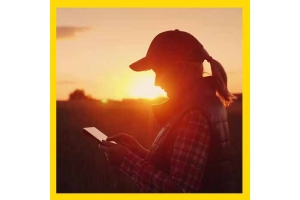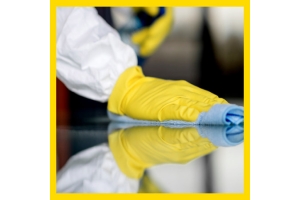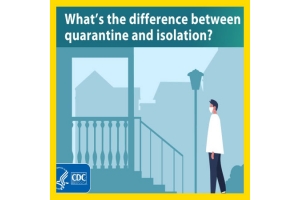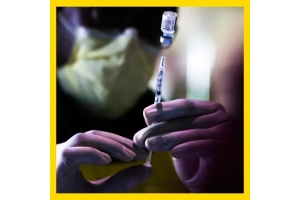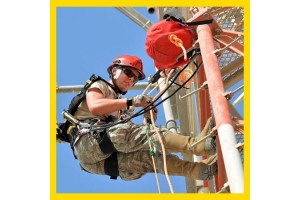Currency
May 10, 2020
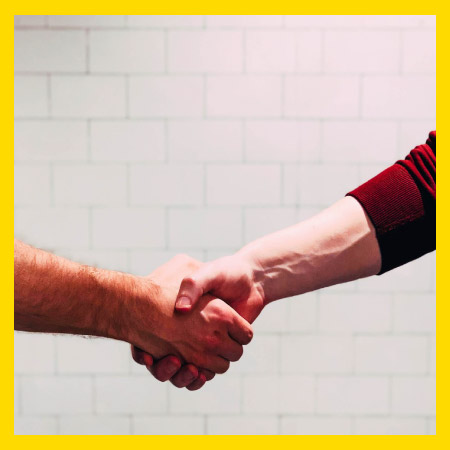
Around the world, humans are struggling to ignore thousands of years of bio-social convention and avoid touching another. Shaking hands might be one of the hardest customs to lose in the post-pandemic world but there are alternatives, writes James Jeffrey.
The humble handshake spans the mundane to the potent, ranging from a simple greeting between strangers who will never meet again, to the sealing of billion-dollar deals between business titans.
There are various ideas about the origin of the handshake. It may have originated in ancient Greece as a symbol of peace between two people by showing that neither person was carrying a weapon. Or the shaking gesture of the handshake may have started in Medieval Europe, when knights would shake the hand of others in an attempt to shake loose any hidden weapons.
The Quakers are credited with popularising the handshake after they deemed it to be more egalitarian than bowing.

The handshake is a "literal gesture of human connectedness," a symbol of how humans have evolved to be deeply social, tactile-orientated animals, says Cristine Legare, a psychology professor at the University of Texas at Austin.
With a history tracing back thousands of years, the handshake may be too entrenched to be easily halted.
"The fact we went for the elbow bump as an alternative shows how important touch is - we didn't want to lose that physical connecting," says Prof Legare.
That biological drive to touch and be touched is found in other animals as well. In the 1960s American psychologist Harry Harlow demonstrated how vital touch and affection was for the development of young rhesus monkeys.
• Why going without physical touch is so hard
Other examples from the animal kingdom include our closest cousins: chimpanzees typically touch palms, hug and sometimes kiss as a form of greeting. Giraffes use their necks that can reach two metres in length to engage in a type of behaviour called "necking" - with male giraffes entwining their neck with each other's and swaying and rubbing to assess the other's strength and size to establish dominance.
That said, numerous forms of human greeting exist around the world that avoid the transmission trap. Many cultures embrace pressing the palms of hands together with fingers pointing up while accompanied by a slight bow, the traditional Hindu Namaste greeting being one of the most well-known.
In Samoa there is the "eyebrow flash" that comprises raising your eyebrows while flashing a big smile at the person you are greeting.
In Muslim countries, a hand over a heart is a respectful way to greet someone you are not accustomed to touching. And there is the Hawaiian shaka sign, adopted and popularised by American surfers, made by curling the three middle fingers and extending you thumb and smallest finger while shaking your hand back and forth for emphasis.
Physical touch has not always been deemed so critical. During the first half of the 20th Century, many psychologists believed that showing affection to children was simply a sentimental gesture that served no real purpose - even cautioning that displays of affection risked spreading diseases and contributing to adult psychological problems.
• The psychology of panic buying
• The fear of coronavirus is changing our psychology
In her book Don't Look, Don't Touch, behavioural scientist Val Curtis of the London School of Hygiene and Tropical Medicine says that one possible reason that handshakes and kisses on cheeks endure as greetings is because they signal that the other person is trusted enough to risk sharing germs with - hence the history of the practices going in and out of style depending on public health concerns.
In the 1920s, articles appeared in the American Journal of Nursing that warned of hands being the agents of bacterial transfer, and recommending that Americans adapt the Chinese custom at the time, of shaking one's own hands together when greeting a friend.
There have been more recent objections to handshakes that pre-date the coronavirus outbreak: in 2015, a UCLA hospital established a handshake-free zone in its intensive care unit (the UCLA policy only lasted six months).
Meanwhile, many Muslim women throughout the world have objected to handshakes based on religious grounds.
But despite such reservations and incidences of conscientious objectors to handshakes, as the 20th century progressed the gesture evolved into a near universal and unassailable symbol of professional greeting.
Scientific studies of the ritual have identified how a good handshake activates the same part of the brain that processes other types of reward stimulus such as good food, drink and even sex.
As some states in the US begin to ease lockdown measures, the future of the handshake remains uncertain.
"I don't think we should ever shake hands ever again, to be honest with you," Dr Anthony Fauci, a key member of the White House coronavirus task force, said back in April.
"Not only would it be good to prevent coronavirus disease; it probably would decrease instances of influenza dramatically in this country."
Social distancing guidelines will likely stay in place for a long time to come, according to US government's guidelines for re-opening the country, especially for vulnerable people like the elderly and those with medical co-morbidities such as lung disease, obesity and diabetes.
The humble handshake spans the mundane to the potent, ranging from a simple greeting between strangers who will never meet again, to the sealing of billion-dollar deals between business titans.
There are various ideas about the origin of the handshake. It may have originated in ancient Greece as a symbol of peace between two people by showing that neither person was carrying a weapon. Or the shaking gesture of the handshake may have started in Medieval Europe, when knights would shake the hand of others in an attempt to shake loose any hidden weapons.
The Quakers are credited with popularising the handshake after they deemed it to be more egalitarian than bowing.

The handshake is a "literal gesture of human connectedness," a symbol of how humans have evolved to be deeply social, tactile-orientated animals, says Cristine Legare, a psychology professor at the University of Texas at Austin.
With a history tracing back thousands of years, the handshake may be too entrenched to be easily halted.
"The fact we went for the elbow bump as an alternative shows how important touch is - we didn't want to lose that physical connecting," says Prof Legare.
That biological drive to touch and be touched is found in other animals as well. In the 1960s American psychologist Harry Harlow demonstrated how vital touch and affection was for the development of young rhesus monkeys.
• Why going without physical touch is so hard
Other examples from the animal kingdom include our closest cousins: chimpanzees typically touch palms, hug and sometimes kiss as a form of greeting. Giraffes use their necks that can reach two metres in length to engage in a type of behaviour called "necking" - with male giraffes entwining their neck with each other's and swaying and rubbing to assess the other's strength and size to establish dominance.
That said, numerous forms of human greeting exist around the world that avoid the transmission trap. Many cultures embrace pressing the palms of hands together with fingers pointing up while accompanied by a slight bow, the traditional Hindu Namaste greeting being one of the most well-known.
In Samoa there is the "eyebrow flash" that comprises raising your eyebrows while flashing a big smile at the person you are greeting.
In Muslim countries, a hand over a heart is a respectful way to greet someone you are not accustomed to touching. And there is the Hawaiian shaka sign, adopted and popularised by American surfers, made by curling the three middle fingers and extending you thumb and smallest finger while shaking your hand back and forth for emphasis.
Physical touch has not always been deemed so critical. During the first half of the 20th Century, many psychologists believed that showing affection to children was simply a sentimental gesture that served no real purpose - even cautioning that displays of affection risked spreading diseases and contributing to adult psychological problems.
• The psychology of panic buying
• The fear of coronavirus is changing our psychology
In her book Don't Look, Don't Touch, behavioural scientist Val Curtis of the London School of Hygiene and Tropical Medicine says that one possible reason that handshakes and kisses on cheeks endure as greetings is because they signal that the other person is trusted enough to risk sharing germs with - hence the history of the practices going in and out of style depending on public health concerns.
In the 1920s, articles appeared in the American Journal of Nursing that warned of hands being the agents of bacterial transfer, and recommending that Americans adapt the Chinese custom at the time, of shaking one's own hands together when greeting a friend.
There have been more recent objections to handshakes that pre-date the coronavirus outbreak: in 2015, a UCLA hospital established a handshake-free zone in its intensive care unit (the UCLA policy only lasted six months).
Meanwhile, many Muslim women throughout the world have objected to handshakes based on religious grounds.
But despite such reservations and incidences of conscientious objectors to handshakes, as the 20th century progressed the gesture evolved into a near universal and unassailable symbol of professional greeting.
Scientific studies of the ritual have identified how a good handshake activates the same part of the brain that processes other types of reward stimulus such as good food, drink and even sex.
A future without handshakes?
As some states in the US begin to ease lockdown measures, the future of the handshake remains uncertain.
"I don't think we should ever shake hands ever again, to be honest with you," Dr Anthony Fauci, a key member of the White House coronavirus task force, said back in April.
"Not only would it be good to prevent coronavirus disease; it probably would decrease instances of influenza dramatically in this country."
Social distancing guidelines will likely stay in place for a long time to come, according to US government's guidelines for re-opening the country, especially for vulnerable people like the elderly and those with medical co-morbidities such as lung disease, obesity and diabetes.



